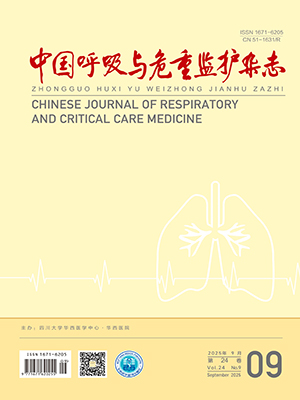呼吸道感染在感染性疾病中占有重要地位,细菌性肺炎是呼吸道感染中的主要代表性疾病,最重要的治疗措施是抗菌治疗,用药选择及方法正确与否直接影响治疗的成败。同时如何降低医疗费用也是临床医生需要考虑的棘手问题。据国外文献报道在英国每年约有5亿张以上的抗微生物药物处方,其中住院处方中约40%为静脉制剂,而我国住院静脉制剂的处方比例则更高。医疗费用的增加部分与静脉用药过多有关。为寻求解决临床治疗与医疗费用之间的矛盾,选择高效、低毒、廉价的抗菌药物,1987年Quintiliani等[1]首先提出了抗生素序贯疗法(sequential therapy)的概念,即在经过相对短疗程(48~72 h)静脉抗菌药物治疗,临床症状基本稳定或改善后,改为口服抗菌药物治疗。口服的抗菌药物可以是与前者完全相同的口服剂型,也可以是同一类或抗菌谱相似的同一级药物,后也有人称之为"转换治疗"(switch therapy)、"降级治疗"(step-down therapy)。据国外文献报道,住院的社区获得性肺炎(CAP)应用序贯疗法者因早期出院每位患者节约费用293~1393美元[2-4]。
Citation: LIU Jin,CHEN Baiyi. Sequential therapy for respiratory infection. Chinese Journal of Respiratory and Critical Care Medicine, 2008, 08(1): 12-14. doi: Copy
Copyright © the editorial department of Chinese Journal of Respiratory and Critical Care Medicine of West China Medical Publisher. All rights reserved




